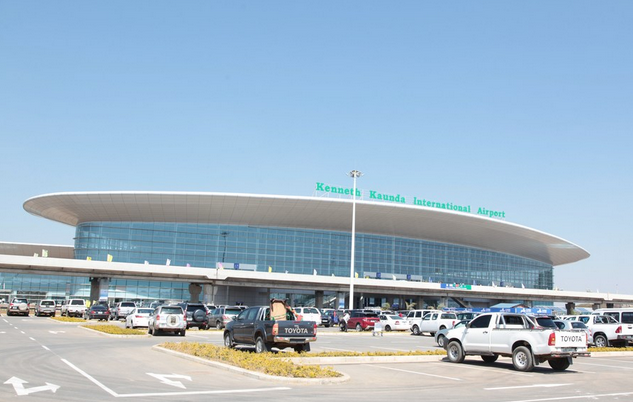LUSAKA, Aug. 11 (Xinhua) -- There is no doubt that infrastructure is essential to the economic development of any country.
Having good roads, railways, airports and other essential infrastructure facilities is cardinal in driving a country's economy.
However, many countries, especially developing ones, do not have the required resources to develop their infrastructure, and Zambia is no exception.
Like other developing countries, Zambia does not have the required finances to develop its infrastructure. But thanks to China's assistance, the southern African nation has been able to have its infrastructure developed to the required standards to spur economic development.
In the past few weeks, the country has commissioned three massive infrastructure projects which will no doubt add impetus to the country's development agenda.
Last month, the country launched the Kafue Gorge Lower Hydropower Station in the southern district on Chikankata financed by the Chinese government.
Once completed, the project will add 750 megawatts of electricity to the country's power grid hence reducing frequent power shortages and make the country an exporter of electricity in the region.
The project has already added impetus to the country's socio-economic prospect through the creation of jobs and other auxiliary businesses.
This month, the country has commissioned two state-of-the-art international airports, with funding from China.
The Simon Mwansa Kapwepwe International Airport in Ndola city on the Copperbelt Province is a greenfield project with a capacity to handle over one million passengers per year, a situation that will boost tourism as well as a commercial complex and hotel, among other facilities.
On the other hand, the commissioning of a modern terminal at the Kenneth Kaunda International Airport in Lusaka, the country's capital, is another milestone in China's assistance to Zambia to develop its infrastructure.
Once completed, the project is expected to increase the number of passengers from the current two million to four million per year. The project also involves a hotel, cargo terminal, air traffic control building, rescue and fire station as well as a shopping mall.
Local residents and government officials are appreciative of China's assistance in the development of the country's infrastructure.
"The infrastructure being funded by China is a sure sign that China means well for Zambia. This support to infrastructure development is a mark of China's true friendship to Zambia," Nelson Musolokoto, a resident of Chipulukusu shanty compound in Ndola said.
His friend Bwalya Mwape agrees and adds that what China is doing is enough evidence to dispel assertions by some critics that China only wants to reap from Africa.
"What more can we ask for? We have never had such an impressive looking airport (in reference to the Simon Mwansa Kapwepwe airport) before in this country. We just want to say thank you to China," he said.
Danny Mfune, Permanent Secretary in the Ministry of Housing and Infrastructure said the ministry is happy that China-funded projects were changing the infrastructure picture in the country.
He said it was gratifying that the government's infrastructure agenda is being realized by the massive infrastructures being done.
For President Edgar Lungu, the infrastructure being commissioned is a realization of his government's infrastructure development agenda.
According to him, infrastructure is key to the economic development of any country and is grateful to China for the support to infrastructure development. China has indeed been a worthy supporter to Zambia's infrastructure development agenda.
From the flagship Tanzania Zambia Railway Authority (TAZARA) railway line which connects Zambia to Tanzania, China has constructed two ultra-modern stadia in the southern African nation as well as a hospital in addition to other projects.
And China says it will continue supporting Zambia in its efforts to improve the living standards of its people and social economic progress. Enditem




 A single purchase
A single purchase









